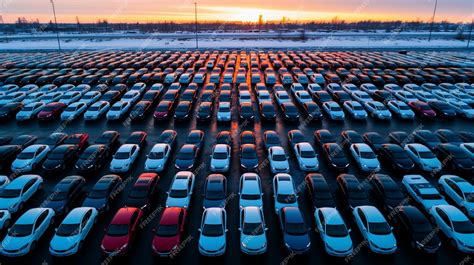In order to lessen the impact of his auto tariffs, President Donald Trump’s administration plans to reduce charges on foreign parts in domestically produced vehicles and prevent tariffs on foreign-made automobiles from compounding existing ones.
In a statement provided by the White House, Commerce Secretary Howard Lutnick said the move is a major victory for the President’s trade policy by rewarding companies that manufacture domestically while providing a runway to manufacturers who have expressed their commitment to invest in America and expand their domestic manufacturing.
The move means car companies paying tariffs would not be charged other levies, such as those on steel and aluminum, and that reimbursements would be given for such tariffs that were already paid. A White House official confirmed the report and indicated the move would be made official on Tuesday.
The move to soften the effects of auto levies is the latest by his administration to show some flexibility on tariffs, which have sown turmoil in financial markets, created uncertainty for businesses, and sparked fears of a sharp economic slowdown.
Automakers are expecting Trump to issue relief from the auto tariffs ahead of his trip to Michigan, which is home to the Detroit Three automakers and more than 1,000 major auto suppliers.
General Motors CEO Mary Barra and Ford CEO Jim Farley praised the planned changes. “We believe the president’s leadership is helping level the playing field for companies like GM and allowing us to invest even more in the U.S. economy,” Barra said.
Farley said the changes “will help mitigate the impact of tariffs on automakers, suppliers and consumers.”
A coalition of US auto industry groups has urged Trump not to impose 25% tariffs on imported auto parts, warning it would cut vehicle sales and raise prices.
“Tariffs on auto parts will scramble the global automotive supply chain and set off a domino effect that will lead to higher auto prices for consumers, lower sales at dealerships and will make servicing and repairing vehicles both more expensive and less predictable,” the industry groups said in the letter.
According to Reuters, the groups, representing GM, Toyota Motor, Volkswagen, Hyundai, and others, sent a letter to US Trade Representative Jamieson Greer, Treasury Secretary Scott Bessent, and Commerce’s Lutnick, stating that most auto suppliers are already in distress and may face production stoppages, layoffs, and bankruptcy.
The US president, Donald Trump, on Wednesday, March 26, 2025, imposed a 25% tariff on imports of automobiles effective April 2, 2025, with imported auto parts facing the same levies no later than May 3.




